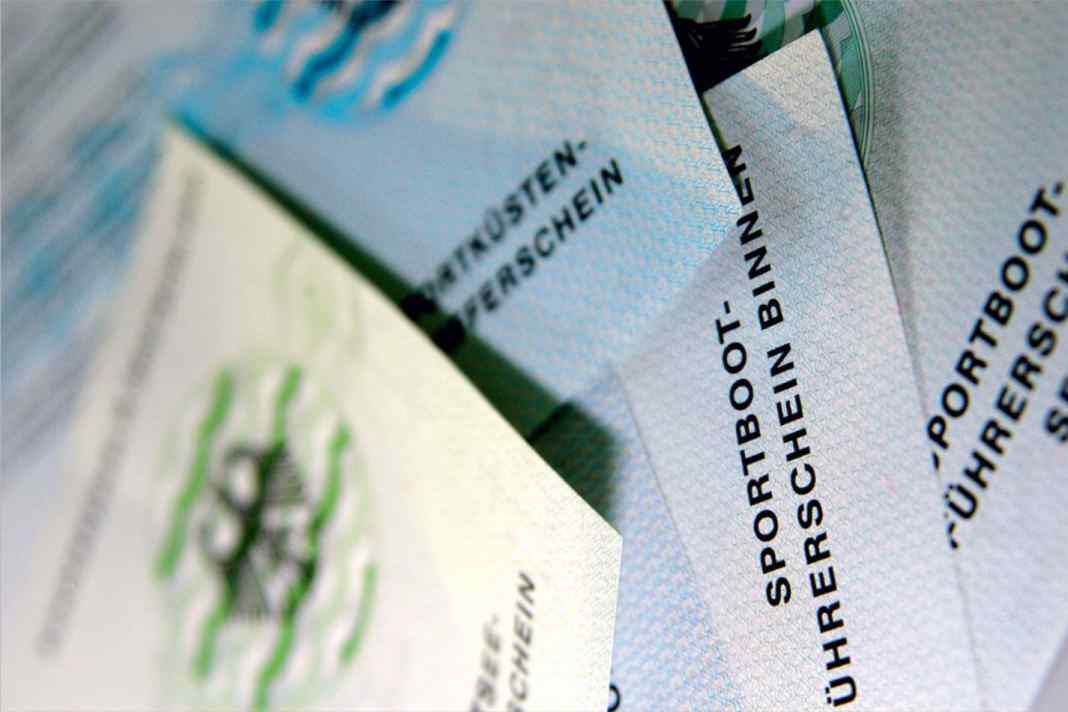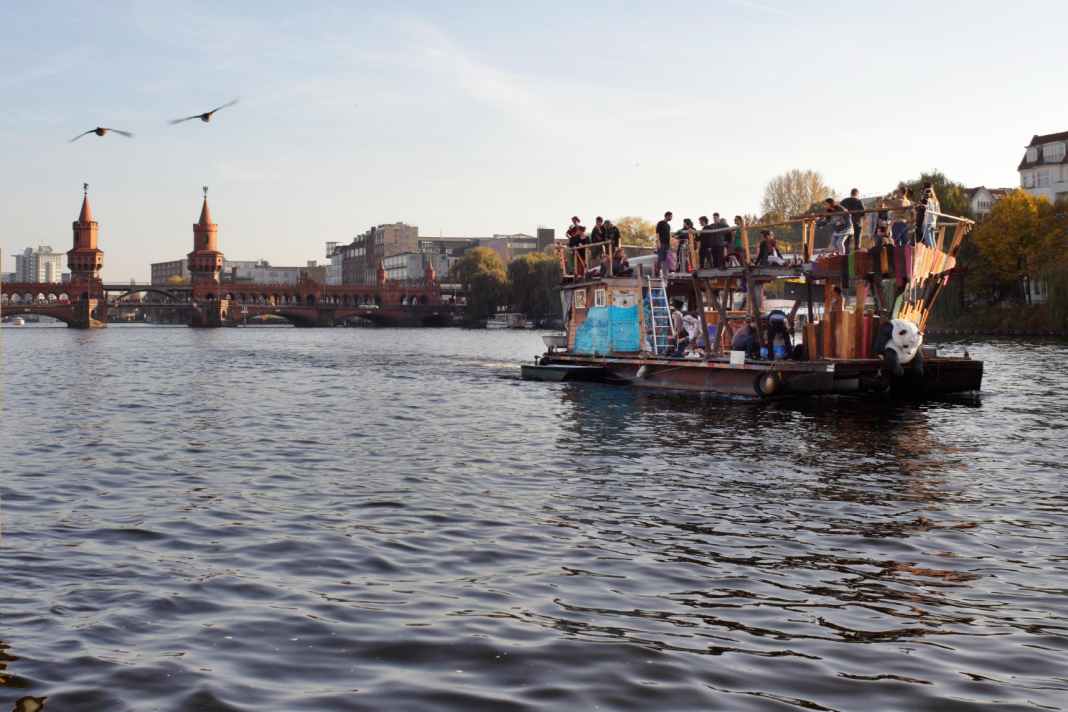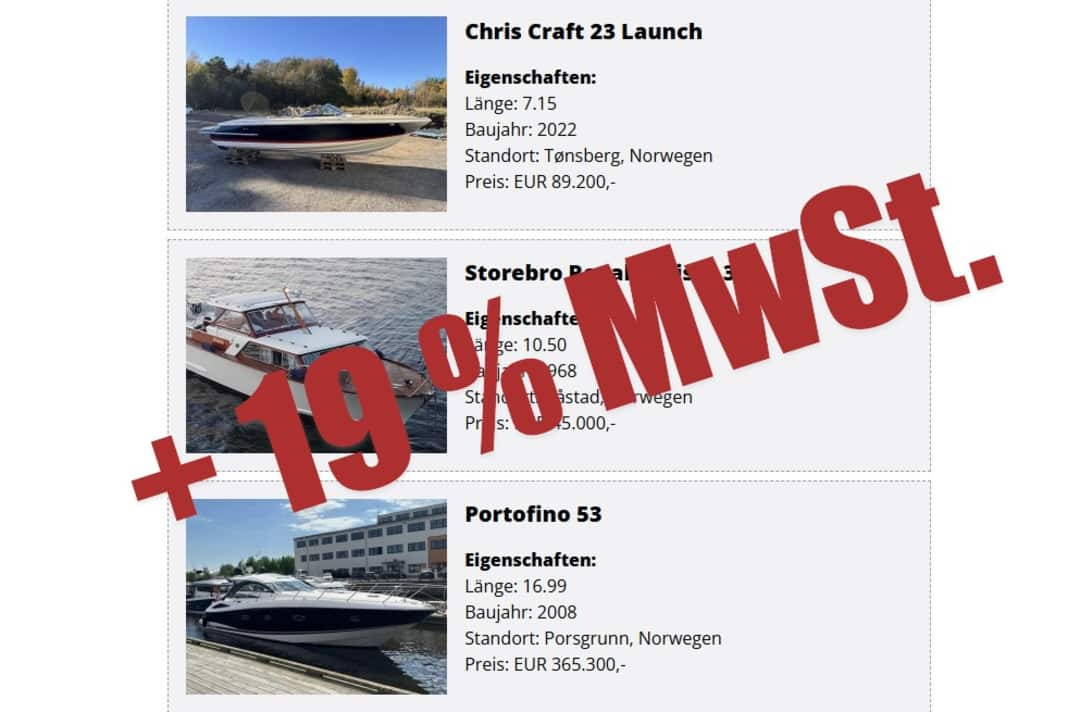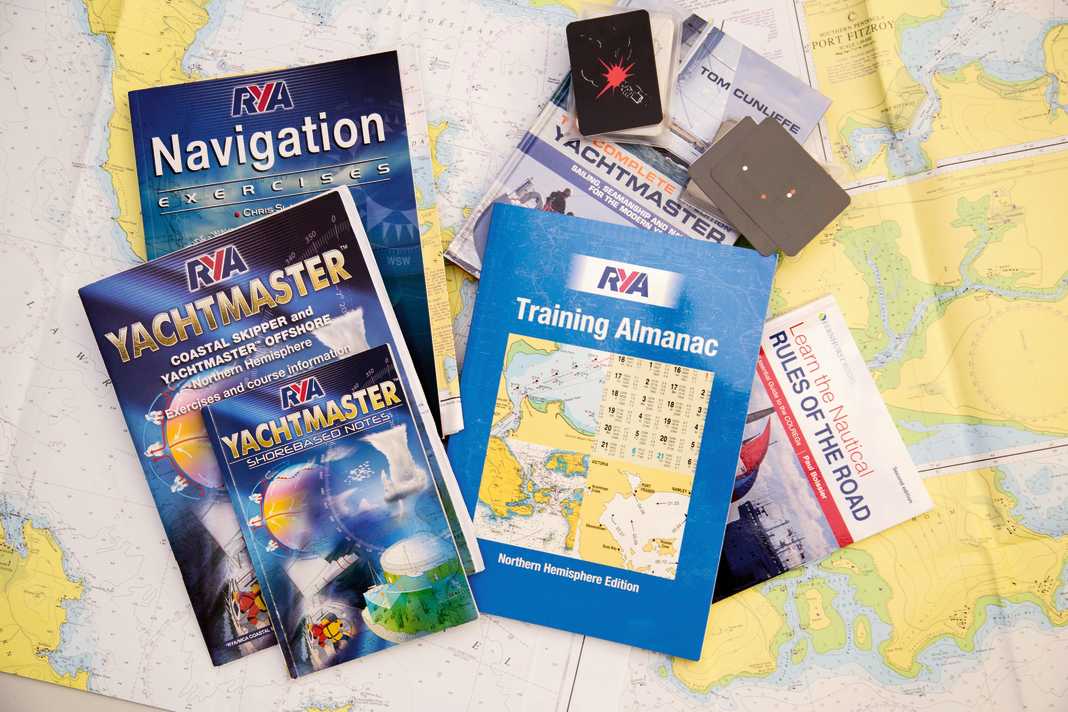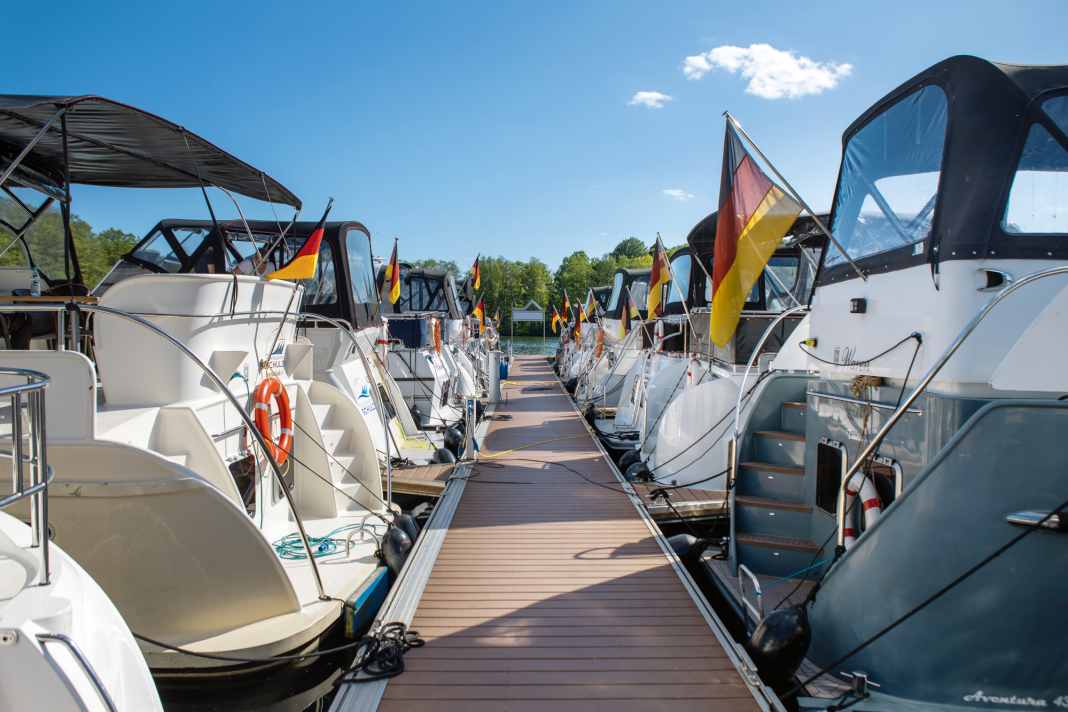Yacht & boat law: Relevant laws and regulations for skippers
Legal issues are not one of the central topics when thinking about motorboats. However, some questions relating to boating law should be clarified from the outset. Others only arise when the unexpected happens.
BOOTE clarifies your questions about yacht and maritime law - from the purchasing process to liability and Insurance matters to changes in the law or legal situations abroad. Law does not have to be dry and written in incomprehensible legalese, but can also be communicated to readers in an entertaining and practical way. BOOTE proves this with exciting guides and news that bring you closer to your rights.
Why you should know your rights and obligations: The importance of yacht law
What falls under the heading of boat law? What is important for boat owners and skippers? What should you know if you want to buy, steer, store or transport a boat?
You are confronted with laws in many different areas relating to boats. It starts with the purchase, when the purchase contract is concluded. It continues with the transport of the boat on the road. Once the boat is finally in the water, you are confronted with the next set of rules and regulations: Traffic regulations on the waterways, liability issues and insurance law, laws surrounding environmental protection, safety regulations, driving licence requirements, etc. If you are travelling abroad, other regulations may apply and you will need to find out about them. But even in Germany, rules and laws are constantly changing, so you need to keep up to date.
The laws relating to boating should therefore not be demonised - because without them, safe, relaxed boating in harmony with commercial shipping would not be possible at all. Laws prevent accidents, fraud, pollution, disputes, financial losses, maritime emergencies and much more. Despite all the rules, disputes sometimes arise that can no longer be resolved by clear legal regulations and good will. Then the only thing that helps is a lawyer - and good legal expenses insurance.
However, rule-compliant, considerate and conscientious behaviour can in many cases prevent time out on the water from being overshadowed by legal disputes. The prerequisite for this is that you know your rights and obligations!
Relevant laws: From BGB to KVR
Which specific law books should we take a look at?
- Contract and sales law is regulated in the German Civil Code (BGB). It sets out, for example, what obligations and rights the buyer and seller have and how a contract comes into being or is effective.
- You will be confronted with traffic law when transporting your boat on the roads. In addition to the Road Traffic Regulations (StVO), the Road Traffic Licensing Regulations (StVZO) are also relevant, which include, for example, the approval of the trailer.
- Ideally, you should consider the topic of insurance before you buy - the legal framework for this can be found in the German Insurance Contract Act (VVG). As boat insurance policies come into effect during transport on the road, they should be taken out in good time so that protection is in place from the outset. The details of liability can of course be found in the respective contract with the insurer, not in the law book.
- Anyone wishing to operate a motorboat with more than 15 hp (combustion engine) or 7.5 kW (electric motor) must be in possession of a recreational boating licence. This is stipulated by the Sport Boat Driving Licence Ordinance (SpFV). There are exceptions in certain waters (e.g. Lake Constance and the Rhine) and a licence is already required for less powerful boats.
- Additional licences or patents are required for vessels over 20 metres in length or for commercially used boats.
- Certificates are also required for the operation of certain radio equipment, which differ in the same way as inland and sea driving licences.
- Anyone who acquires a recreational boating licence also learns which traffic regulations apply on the water. However, anyone travelling without a licence must also be aware of and comply with the German Maritime Traffic Regulations (SeeSchStrO) and the German Inland Waterways Regulations (BiSchStrO). Depending on the region, there are other rules that you need to be aware of before setting off. Internationally, the Collision Prevention Regulations (KVR) apply as rules of right of way and behaviour at sea.
- Many laws also revolve around environmental and climate protection. For example, exhaust emission standards, speed limits and driving bans apply to numerous bodies of water. There are also regulations regarding the discharge of wastewater and waste into rivers and seas. The international MARPOL (International Convention for the Prevention of Pollution from Ships) agreement is implemented in German law as the Ordinance on Environmentally Sound Behaviour in Maritime Shipping (SeeUmwVerhV). However, regional nature conservation regulations also play a role.
- Safety on board is not just a private matter for owners, but is also subject to certain regulations - even if these are quite lax. In addition to the recommendations of the Federal Maritime and Hydrographic Agency, the law only requires "large pleasure craft" (i.e. pleasure craft with a cabin and overnight accommodation) that are used for private leisure purposes to have navigation lights, sound signals and a magnetic compass. The situation is different for charter or commercially used boats. For them, the equipment requirement is more extensive and the chance of being checked is significantly higher.
- On inland waterways, all motorised boats with a power of 3 hp or more must be labelled (Inland Navigation Labelling Ordinance - KlFzKV-BinSch). This can be implemented in various ways - but in any case it must be preceded by registration.
- Owners need to take a look at the penal code when they become victims of theft or burglary. Outboards are favourite objects for thieves, but the electronics on board, which are becoming increasingly extensive and valuable, are also often what burglars are after. A criminal complaint is a prerequisite for being able to make use of criminal and insurance law in such cases.
Other laws become relevant when travelling across national or EU borders.
Legal framework for buying a yacht: What do buyers and sellers need to consider?
There are a number of things that need to be considered when buying a boat. The buyer and seller stipulate the terms and conditions of sale in the purchase contract. However, conditions cannot be laid down arbitrarily - if they do not fall within a certain framework and are not recorded in a certain form, the contract is at worst not legally binding. This becomes a particular problem if defects subsequently occur. A breach of contract can only be held accountable if there is a valid contract.
Numerous websites offer sales contract templates for download. If you use these, you should make sure that the source is reputable and that the templates are specifically intended for the private sale of used watercraft. As a seller, for example, you should make sure that the contract excludes liability for material defects. For buyers, on the other hand, it is important that the contract contains all relevant information about the boat, lists any existing defects and confirms that the boat is accident-free. The documents that will be transferred to the new owner with the boat (manufacturer's invoice, operating licence for trailer, CE certification, proof of insurance, etc.) should also be listed in the purchase contract. Last but not least, the agreed method of payment and the place and time of handover must be specified in the contract. Although private sales of used boats usually involve a personal handover and the contracts are therefore valid with the original signatures of the buyer and seller, consumers must be aware that sales contracts cannot be finalised by signature alone.
Of course, individual conditions can also be included in contracts and buyers and sellers should negotiate not only the purchase price but also the other conditions in advance. Buyers should find out what is normally included in the price, what a discount is required for and what the seller may charge extra for. But it's not just sales contracts for used boats that should be scrutinised. You also need to scrutinise the small print of purchase conditions for new boats. A favourable price that initially lured buyers is often deceptive - equipment or VAT are sometimes not included.
It is not uncommon for boat dealers to offer insurance or financing models at the same time. You should compare these with other offers on the market before making a hasty decision.
In the case of private sales, the boat insurance of the previous owner is usually transferred to the new owner for an initial transitional period under the old conditions. For a new or uninsured boat, however, a separate insurance policy must be taken out immediately - preferably before the purchase, as otherwise the boat will not be insured when it is transported to its home territory for the first time. Most accidents happen at the beginning, when owners still lack experience.
Liability issues and insurance law: How skippers can protect themselves financially
Even if it is not a legal requirement in Germany, nobody travelling by boat should do without liability insurance. Damage to third-party property can quickly run into the millions and mean personal insolvency. But even if it is significantly less, it is annoying to find yourself without insurance cover.
For boats of higher value, it makes sense to take out additional yacht hull insurance. This is not only liable for damage to third parties, but also if your own yacht is damaged.
In the event of major damage, it is not uncommon for experts to be called in. These independent experts make statements on the amount and origin of the damage. Unfortunately, it happens time and again that insurers do not fulfil their obligations and refuse to recognise damage. They then rely on the fact that insured persons will not bother to contest the judgement. When choosing insurance, consumers should therefore not just look for the cheapest price - but for providers with good ratings and experience in the industry. Good claims management is characterised not only by swift processing, but also by competent advice. Only insurers who specialise in boats can provide this.
In addition to boat liability and hull insurance, there are other types of insurance that make sense for charterers, owners or crew members. Skipper's liability, deposit, accident, international health and travel cancellation insurance can be important components of complete protection. Accidents, accidents, shipwrecks, oil damage or illnesses happen all the time during a boat trip - if you are at least insured against the financial consequences, you will be much more relaxed when travelling.
When only a lawyer can help: Cases of legal disputes
Another insurance policy that is often taken out when buying a boat is legal protection. Even boat owners who are well informed about their obligations and rights can get into disputes in which they need the assistance of a lawyer. Time and again, cases relating to maritime and yacht law end up before regional courts (LG), higher regional courts (OLG) or shipping courts. In such cases, boat owners would do well to consult a lawyer who specialises in boat law. The respective specialisations of a law firm can easily be found out via internet research. As the world of motorboats is a very special one with its own terms and rules, not all lawyers can represent clients equally well in legal disputes relating to water sports.
The situations that lead to a skipper or boat owner needing legal assistance are many and varied. They often involve disagreements over liability issues relating to accidents, collisions, storms, illnesses, injuries, theft or other cases of damage. The deposit is also often a point of contention when chartering a yacht. Conflicts can arise when buying a used boat if the exclusion of warranty is not clearly formulated. When buying a new boat, on the other hand, defects that are subsequently discovered can lead to the buyer and seller arguing about the right to rectification or subsequent fulfilment of services. Warranty protection and everything that falls under it are also sometimes topics of conflict. Of course, legal assistance is not only needed when others are in the wrong, but also when you yourself have fallen foul of the law - it happens more quickly than you might think and it doesn't always have to be intentional. Even if you go on board well informed, it can happen that papers are forgotten or prohibition signs are overlooked - or laws have been changed in the meantime.
BOOTE regularly reports on particularly sensational cases that often keep the media and courts busy for weeks. While such cases are often good entertainment for outsiders, they can be gruelling and expensive for those affected. That's why you should always act in the most de-escalating way possible - because even if you end up winning the legal dispute, you've already lost a lot on the way there - namely time, energy and money. You should only do this if there is no other option.
Changes to the law and how they can affect skippers
BOOTE keeps you informed about all relevant changes to the law so that you don't get into trouble with the law despite your best intentions. Whether it's temporary amendments to regulations due to special circumstances or permanent changes to the law - BOOTE keeps you up to date!
Such subsequent changes to regulations often hit boat owners hard: in the case of stricter emission standards, it may be necessary to replace the yacht's engine if the same sailing area is to be used. The recently improved driving licence requirement for electric boats from 7.5 kW has also forced many a boat owner to "go to school" involuntarily - or to sell their boat. BOOTE not only announces such innovations, but also explains the background that led to them.
Laws abroad: dream destinations and their peculiarities
It becomes even more complicated when travelling in different areas and crossing borders by land or water. What is the legal situation in the respective country and sailing area? What additional documents are required? Are all German driving licences, patents and certificates recognised? What are the regulations on the roads when travelling with a boat trailer? Is there any country-specific mandatory safety equipment? What needs to be considered when buying a motor yacht abroad? In which country is a radio licence compulsory, in which country is liability insurance compulsory and where do you need an international boat licence? Many owners are particularly interested in sailing in Croatia, Italy and other Mediterranean countries. Lots of sunshine and little wind make the Adriatic coastal regions an Eldorado for motor boating. In addition to the perfect climate, Croatia also offers an infrastructure that hardly any other country can match. It is therefore hard to argue against the tourist tax charged to skippers who stay overnight on their motor or sailing yacht.
Exciting yacht law understandable for everyone
Yacht law can be a really exciting subject area and you don't need to have a law degree to get an overview of the relevant laws. Most of it comes naturally as you gradually get deeper and deeper into motorboat sports. Not only your own Knowledge increases with every new area and day on the water, but also the contacts with other boat enthusiasts - and they in turn pass on their knowledge.




